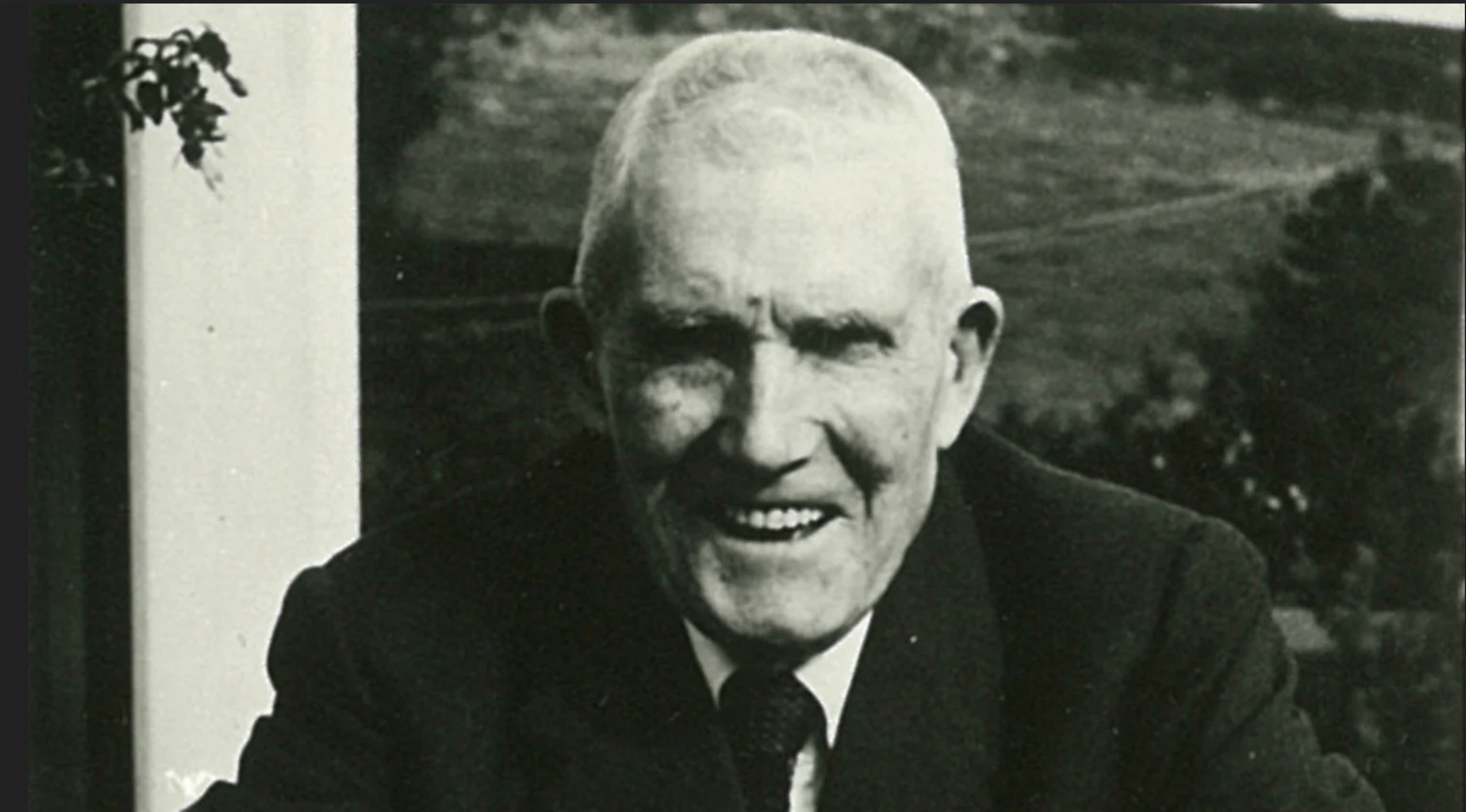In 1974, Ned Maddrell died. He lived on the Isle of Man and was the last native speaker of the Manx language. But anyone who thinks that the language has disappeared from the globe forever along with its last speaker is barking up the wrong tree. Because unlike most endangered languages, Manx is making a remarkable comeback.

Ned Maddrell, once the last native speaker of Manx image source
Manx is a Gaelic language and was spoken by virtually the entire population of the Isle of Man until the 18th century. It was brought to the island by Irish traders and monks in the fourth and fifth centuries as part of the Christianisation process, where it displaced the previously dominant Brythonic. It is interesting to note that Manx was spoken exclusively for a long time. Either English or Latin was used for written communication. The first written record of Manx dates from 1610 and is a translation of the Book of Common Prayer.
In the 19th century, first the English elite and then the working class began to discover the Isle of Man as a holiday destination. As a result, tourism became the island's most important industry. In order to get a piece of the pie, it was necessary for the inhabitants of the Isle of Man to learn English. Similar to Franco-Provençal, Manx was soon considered backward and associated with poverty. Thus there is a well-known saying which goes as follows: Cha jean oo cosney ping lesh y Ghailck, meaning "You won't make a penny in Manx." The decline of Manx progressed inexorably. In 1901, only 9.1% of the population claimed to be able to speak Manx. Another 40 years later, there were just 20 native speakers. When the last native speaker, Ned Maddrell, died at the end of 1972, it seemed that the last hour had also struck for Manx.
But even though most of the inhabitants had a negative attitude towards Manx, there were still some people who vehemently fought for the preservation of the language. Special mention should be made of Brian Stowell, without whom the revival of Manx might never have happened. A resident of the Isle of Man himself, he learned Manx after reading a newspaper article by Doug Fargher bemoaning the decline of his language. He networked with Doug and joined Yn Çheshaght Ghailckagh (The Manx Gaelic Society), where he recorded audio of the remaining Manx speakers, for example. He later transferred an Irish language course to Manx, translated books such as Alice in Wonderland (Contoyrtyssyn Ealish ayns Çheer ny Yindyssyn) and even wrote his own novel in Manx: Dunveryssyn yn Tooder-Folley (The Vampire Killers).
It is thanks to him and many other players that there has been a veritable revival of Manx on the Isle of Man. Since 1992, for example, there has been a school where Manx is the language of instruction and there are now about 50 native speakers again.
This is what Manx sounds like:
Examples:
Moghrey mie (MORR-a MY) - Good morning
Fastyr mie (FASS-ter MY) - Good afternoon / Good evening
Oie vie (ee-VY) - Goodnight
Kys t'ou? (kiss-TOW) - How are you?
Mie dy liooar (MY-tha-L'YOOR) - Well enough
Castreycair (KASS-tra-care) - Middlin
Goll as gaccan (gull as GAG un) - Goin' 'n' grumblin'
Gura mie ayd (gurr-a-MY-edd) - Thank you
Slane lhiat (slenn-L'YATT) - Goodbye
Hee'm oo (HEE-m oo) - I'll see you
Sources:
Congratulations @relationtrip! You have completed the following achievement on the Hive blockchain and have been rewarded with new badge(s) :
Your next target is to reach 7000 upvotes.
You can view your badges on your board and compare yourself to others in the Ranking
If you no longer want to receive notifications, reply to this comment with the word
STOPCheck out the last post from @hivebuzz: